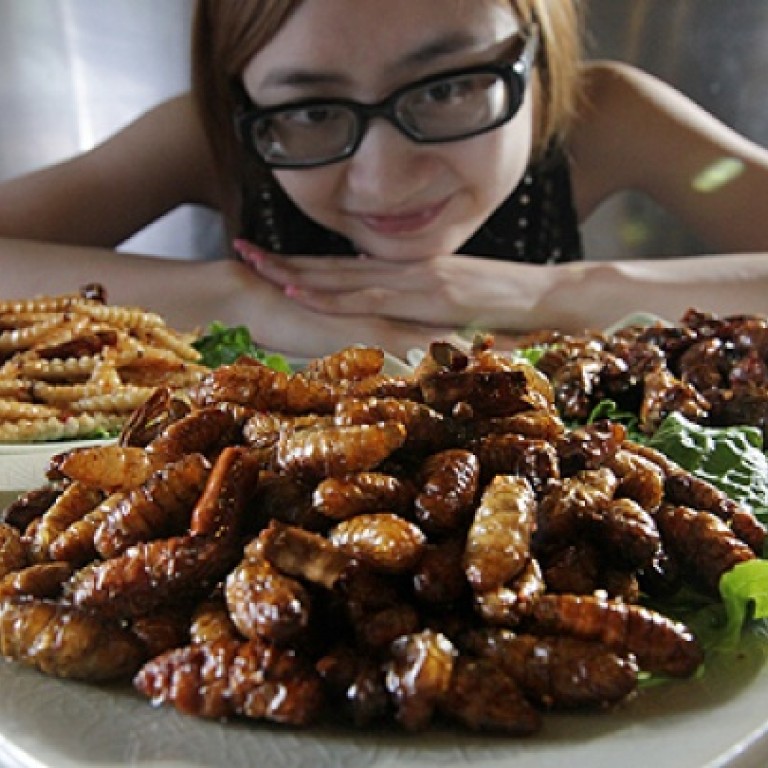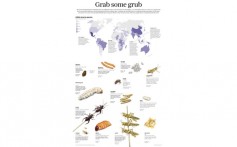
Eating more insects could help fight hunger, UN food agency says
Food agency says edible insects could boost nutrition and reduce pollution
The UN has new weapons to fight hunger, boost nutrition and reduce pollution, and they might be crawling or flying near you right now: edible insects.
The Food and Agriculture Organisation yesterday hailed the likes of grasshoppers, ants and other members of the insect world as underused food for people, livestock and pets.
A 200-page report, released at a news conference at the UN agency's Rome headquarters, says 2 billion people worldwide already supplement their diets with insects, which are high in protein and minerals, and have environmental benefits.
Insects are "extremely efficient" in converting feed into edible meat, the agency said. On average, they can convert 2kg of feed into 1kg of insect mass. In comparison, cattle require 8kg of feed to produce 1kg of meat.
Most insects are likely to produce fewer harmful greenhouse gases, and also feed on human and food waste, compost and animal slurry, with the products being used for agricultural feed, the agency said.
Currently, most edible insects are gathered in forests and what insect farming does take place is often family-run and serves niche markets. But the UN says mechanisation can ratchet up insect farming production. The fish bait industry, for example, has long farmed insects.
Insect farming is "one of the many ways to address food and feed security", the food agency said. "Insects are everywhere and they reproduce quickly,"
The agency said they leave a "low environmental footprint" and provide high-quality protein and nutrients when compared with meat and fish and are "particularly important as a food supplement for undernourished children".
Insects can also be rich in copper, iron, magnesium, manganese, phosphorus, selenium and zinc, and are a source of fibre.
The agency noted that its Edible Insect Programme is also examining the potential of arachnids, such as spiders and scorpions, although they are not strictly speaking insects.
University biologists have analysed the nutritional value of edible insects, and some of them, such as certain beetles, ants, crickets and grasshoppers, come close to lean red meat or broiled fish in terms of protein per gram.
But are they tasty?
"Insect consumption is part of our daily life," Gabon Forestry Minister Gabriel Tchango said at the news conference, adding that some insects - like beetle larvae and grilled termites - were considered delicacies.
"Insects contribute about 10 per cent of animal protein consumed by the population."
Convincing Western consumers remains the biggest challenge. The authors of the report admitted that "consumer disgust remains one of the largest barriers to the adoption of insects as viable sources of protein in many Western countries".
And some people who might not entertain the thought of consuming insects might already be eating them. Many insects are ingested inadvertently.
Eva Mueller, director of forest economics at the FAO, suggested that the food industry could help in "raising the status of insects" by including them in recipes and putting them on restaurant menus.
"Beetles, grasshoppers and other insects ... are now showing up though on the menus of some restaurants in some European capitals," said Mueller.

